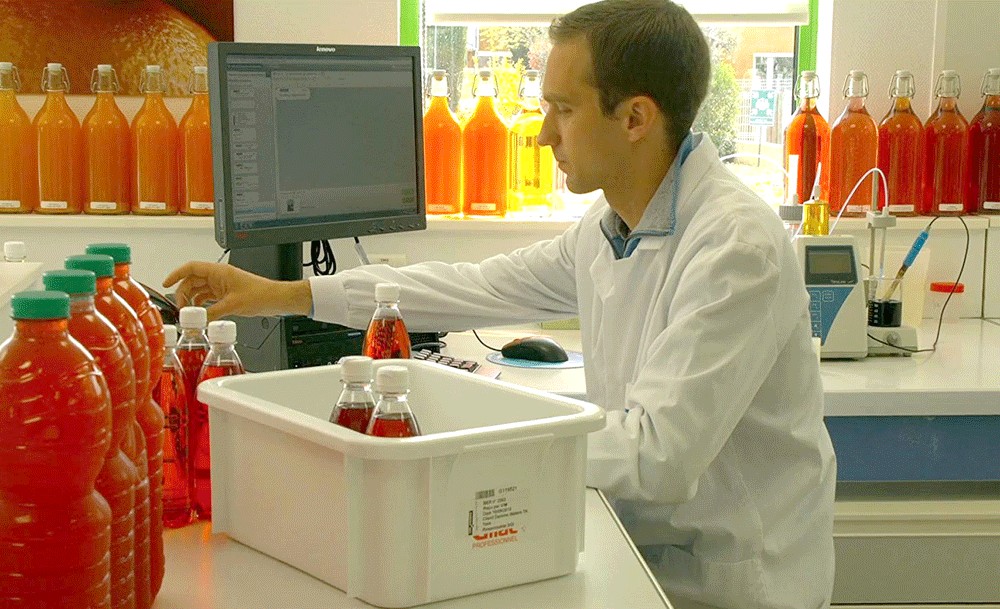Popular Reads
Top Results
Can't find what you're looking for?
View all search resultsPopular Reads
Top Results
Can't find what you're looking for?
View all search resultsFilm festival features environment, food consumption
German cultural center Goethe Institut’s Science Film Festival has returned for its ninth edition.
Change text size
Gift Premium Articles
to Anyone
G
erman cultural center Goethe Institut’s Science Film Festival has returned for its ninth edition, and this time it focuses on the theme of food production and its impact on the environment.
The festival is Goethe Institut’s longest-running event and the cultural center describes this year’s theme as one that has been both socially and politically pressing in the last few years, specifically related to the ongoing phenomenon of global warming.
The festival runs from Oct. 23 to Nov. 13 and will feature 15 films and shorts related to the topic of food revolution aimed for young students.
This year’s theme, Food Revolution: Meeting the Challenges of 2050, represents a desire to focus outside of the general idea that transportation is the leading cause for climate change and instead focus on an overlooked aspect of it: Human eating patterns that have become very dependent on meat, and therefore increases the use of environmentally harmful production methods.
The Goethe Institut states in its official statement that producing food for a fast-growing global population has a much greater impact on the planet, with greenhouse gases emitted by cattle and rice fields, the burning of forests for agricultural purposes and nitrous oxide emissions from agricultural applications being only three examples.
Adding to that, Goethe Institut Jakarta director Heinrich Bloemke explains that this year’s theme is an issue that is being discussed by countless countries around the world, particularly related to food supply sustainability, how to reduce agricultural emissions by producers as well as other environmental risks that come with the way we demand and consume our food in the age of global warming.
To maximize the idea, the festival is expanding to 42 cities nationwide, going to various schools to directly teach students and work with teachers on how to teach the subject of food sustainability in a fun way to fully get the message across.
“By bringing the festival to the participating schools, we are able to give them a more comprehensive education on the matter in a way that can really reach these children. Unfortunately, most of the time, such pressing issues on food waste are not taught in schools in a way that it makes them think,” Bloemke says.
“This festival, by providing workshops and experiments in our partner schools, wants to deliver the message in a thorough manner in which students can really understand the complete scope.”
The festival will visit schools across Indonesia, from Aceh to Bandung in West Java, and even Sorong in West Papua.
The films screened on opening night were mostly child-friendly features that aim to teach young viewers the importance of reducing food waste and how to contribute to solving the problem at hand.
One of the films was a short that highlighted the use of insect larvae as an alternative source of protein, titled Germany’s Bug Burgers. In it, a group of scientists from the Netherlands share their experience of turning specific insect larvae into a substitute for meat in burgers and shows several restaurants in the Netherlands and Germany that are already selling the burgers publically.
Launched in 2005, the Science Film Festival has always been the Goethe Institut’s celebration of science and communications. The institute projects that about 100,000 will attend this year’s festival as a promising 80,000 attended the event in 38 cities last year.
In addition to short and feature films, the festival will also showcase documentaries.
One of the documentaries is Clipton Tomatoes in Space, which tells the story of a space research center in Bremen, Germany, that tries to develop a way to grow vegetables in space so that astronauts do not need to depend on packaged food.
Another documentary, Mushrooms on Coffee Grounds, follows the story of a German businessman who utilizes the residue of coffee drinks to grow gourmet mushrooms often used as condiments in fine dining restaurants.
The story of a research center in Russia that tries to discover new chemical compounds in berries around the world is also told in The Berrymakers.











